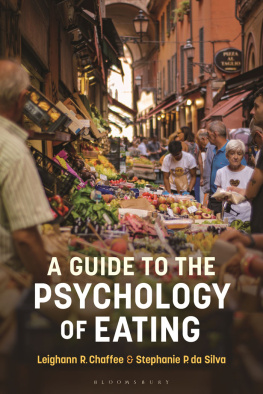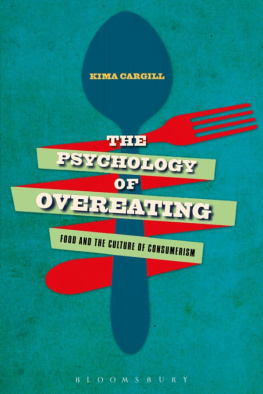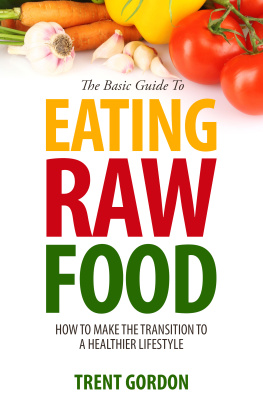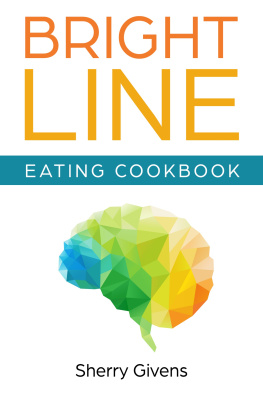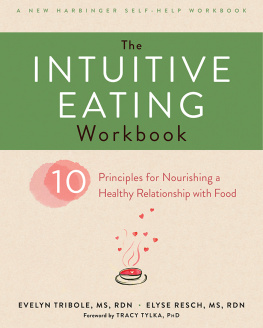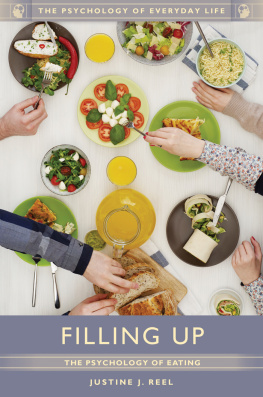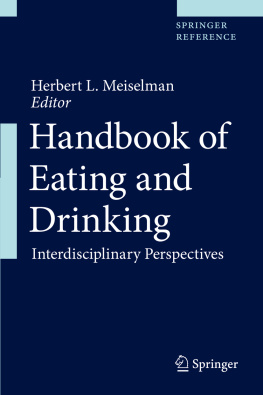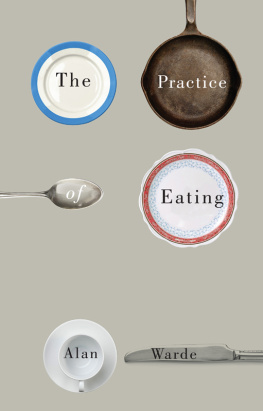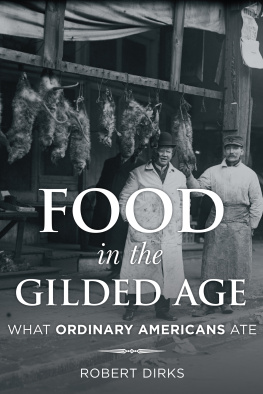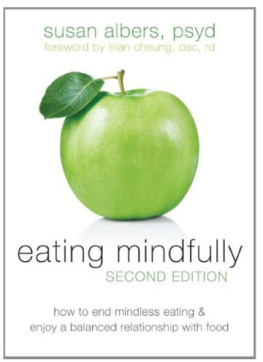
A Guide to the Psychology of Eating
A Guide to the Psychology of Eating
Leighann Chaffee and
Stephanie da Silva

BLOOMSBURY ACADEMIC
Bloomsbury Publishing Plc
50 Bedford Square, London, WC1B 3DP, UK
1385 Broadway, New York, NY 10018, USA
29 Earlsfort Terrace, Dublin 2, Ireland
BLOOMSBURY, BLOOMSBURY ACADEMIC and the Diana logo are trademarks of Bloomsbury Publishing Plc
First published in Great Britain 2022
Copyright Leighann Chaffee and Stephanie da Silva, 2022
Leighann Chaffee and Stephanie da Silva have asserted their rights under the Copyright, Designs and Patents Act, 1988, to be identified as Authors of this work.
For legal purposes the constitute an extension of this copyright page.
Cover image Renate Vanaga, Unsplash
Cover design: Graham Robert Ward
All rights reserved. No part of this publication may be reproduced or transmitted in any form or by any means, electronic or mechanical, including photocopying, recording, or any information storage or retrieval system, without prior permission in writing from the publishers.
Bloomsbury Publishing Plc does not have any control over, or responsibility for, any third-party websites referred to or in this book. All internet addresses given in this book were correct at the time of going to press. The author and publisher regret any inconvenience caused if addresses have changed or sites have ceased to exist, but can accept no responsibility for any such changes.
A catalogue record for this book is available from the British Library.
A catalog record for this book is available from the Library of Congress.
ISBN: HB: 978-1-3501-2510-0
PB: 978-1-3501-2511-7
ePDF: 978-1-3501-2512-4
eBook: 978-1-3501-2513-1
To find out more about our authors and books visit www.bloomsbury.com and sign up for our newsletters .
Also Available from Bloomsbury
Food Studies , Willa Zhen
The Psychology of Overeating , Kima Cargill
Why Food Matters , Edited by Melissa L. Caldwell
Contents
Leighann R. Chaffee is an associate teaching professor in psychology at the University of Washington Tacoma, in Tacoma, Washington, United States. As an educator, she employs perspectives from psychology and neuroscience to promote student persistence and success from the classroom, to the research lab, and in study abroad programs.
Stephanie P. da Silva, PhD, BCBA-D is a professor in the Department of Psychology, Columbus State University, in Columbus, Georgia, United States. Dr. da Silva teaches undergraduate courses in research methods, behavior analysis, and the psychology of eating. She enjoys spending time with her family, playing tennis with friends, and jogging to podcasts and she loves food.
Authorship order is presented alphabetically and does not reflect relative contributions.
Eating and drinking are necessary, everyday components of our life, yet undergraduate coursework in psychology largely omits coverage of these topics. Elective classes about sex, drugs, and film are common while the university curriculum rarely dedicates coursework to the psychology of eating. In line with Virginia Woolfs words, One cannot think well, love well, sleep well, if one has not dined well, recognition of the central role of food and drink in human experience is on the rise. Psychology of eating research has thrived in the past three decades with an awareness of eating in the study of motivation, emotion, and health. Increased knowledge of the cognitions and behaviors around food and consumption confirms the base upon which the psychology of eating is built.
Our motivation for writing this book is to support the scholarly investigation and teaching of eating in psychological science. As the psychology of eating rarely functions as an independent area of study, we pull together information from several related disciplines to summarize and advance current understanding of consumption and provide rationale for greater investment in the psychology of eating. This text complements existing resources on eating that emphasize clinical manifestations of disordered eating or advice for health and nutrition. Though clinical and dietary topics are important, they provide a small window into the larger roles of foods and drinks in our lives. A broader purview through the lens of psychology and its traditional subdisciplines is provided by this text, resulting in a comprehensive treatment of consumption and its bidirectional influences in human life.
Next page
